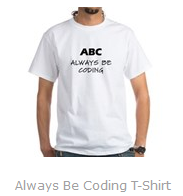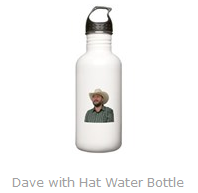Sales Objection Notes
I was reading a lot of objections and sales books when I made these notes, a great deal came from books, youtube videos and websites. References are linked at the bottom.
COMPLAINTS VS OBJECTIONS
OBJECTION: "The price is too high!" COMPLAINT: "The weather is too hot!"
You can negotiate the price, you can't change the weather! That is the difference. You can't counter a complaint, but you can counter an objection.
Treat every objection as a complaint. Agree with the other person. "That's perfect, I agree. That's why I am calling you because I have a solution that will solve your problem." Agree then do the rebuttal. Get them to agree and acknowledge, then rebuttal.
INTERAL vs EXTERNAL OBJECTIONS
This website says it best...
This led to my epiphany. David wasn't communicating on the same level with his customers. David was addressing their external level. Their objection was on their internal level. The external level was the retailer's trust in David's expertise. This is external because David is external from the retailer. The retailers' need, however, was internal. The retailers needed "self-trust" in their own ability to repeat David's information to consumers. The more David addressed the external objection by displaying technical prowess, the more their internal objection was reinforced.
Salespeople won't be successful handling internal objections on the external level, and vice versa. If a customer tells me, "I can't meet your minimum order because I have to pay tax on anything I buy over $5,000, that's an "external" objection. The region's tax code is external to the customer. I would need to address that objection on the external level. For example, I could offer a discount that would offset the tax.
INTERNAL OBJECTIONS:
- Don't have time
- Don't want to bother people, Call Too Much (Squeaky Wheel gets the deal!!!)
- Don't know enough about it (Confidence)
- Working too much
EXTERNAL OBJECTIONS:
"LISTEN TO YOUR CUSTOMER! FIND OUT IF IT'S AN INTERNAL OR EXTERNAL OBJECTION. FIND IT OUT!"
*** LOOK FOR THE BIGGER PROBLEM (THE REAL PROBLEM) ***
- I don't know what it does? (Explain it.)
- How long to see results (What are the results you are looking for? Are those the actual results you want? Let's get started now.)
- Emotional, Got to sleep on it (I agree you don't want to rush into this thing, but we could do X right now.)
- Got to shop other people, I need to shop (3) quotes (Explain the product. IF I COULD X COULD YOU DO Y)
- I am not the decision maker (SELL THEM, SELL THE OTHERS, GET IN FRONT OF THOSE PEOPLE. SCHEDULE!)
- I need to show it to 2 or 3 people (SELL THEM, SELL THE OTHERS, GET IN FRONT OF THOSE PEOPLE. SCHEDULE!)
- My people don't use it (Upsell Training, Explain the product. What If? Imagine...)
- Costs too much... PRICE (Explain the price point)
- Need to think about it. (Before you make your mind up...)
- Takes too Long (Just out of curiousity, How much is what you are doing taking?)
- Wait till next quarter (YOU ARE STILL GOING TO NEED A PRINTER.)
- More than we can afford (IF I COULD X COULD YOU DO Y)
REBUTTALS
- ASK HARD QUESTIONS!!! THE QUESTION IN YOUR HEAD.
- Is there some reason you haven't done this?
- Have you ever done this?
PEOPLE BUY THINGS NOT BECAUSE OF NEED OR WANT... BECAUSE THEY SOLVE PROBLEMS
PERSUASION SWITCHES
Know what drives people, know what bothers them. Remember our job is to help the customer to make decisions.
- PERSUASION SWITCH #1 THE PRESTIGE SWITCH
- PERSUASION SWITCH #2 THE BELIEVABILITY SWITCH
- PERSUASION SWITCH #3 THE PARITY SWITCH
- PERSUASION SWITCH #4 THE CURIOSITY SWITCH
- PERSUASION SWITCH #5 THE URGENCY SWITCH
- PERSUASION SWITCH #6 THE DESIRABILITY SWITCH
- PERSUASION SWITCH #7 THE EDUTAINMENT SWITCH
- PERSUASION SWITCH #8 THE RELATABILITY SWITCH
WHAT MOTIVATES PEOPLE TO MAKE A DECISION? OFFER A SOLUTION TO THEIR PROBLEM.
References
- People by You by Jeb Blount
- How to Overcome Sales Objections by Alyssa Gregory
- Handle Objections at the Level of the Objection by Jeffrey Lipsius
- 32 Sales Objections Easily Countered by Stepp Stevens Sydnor





